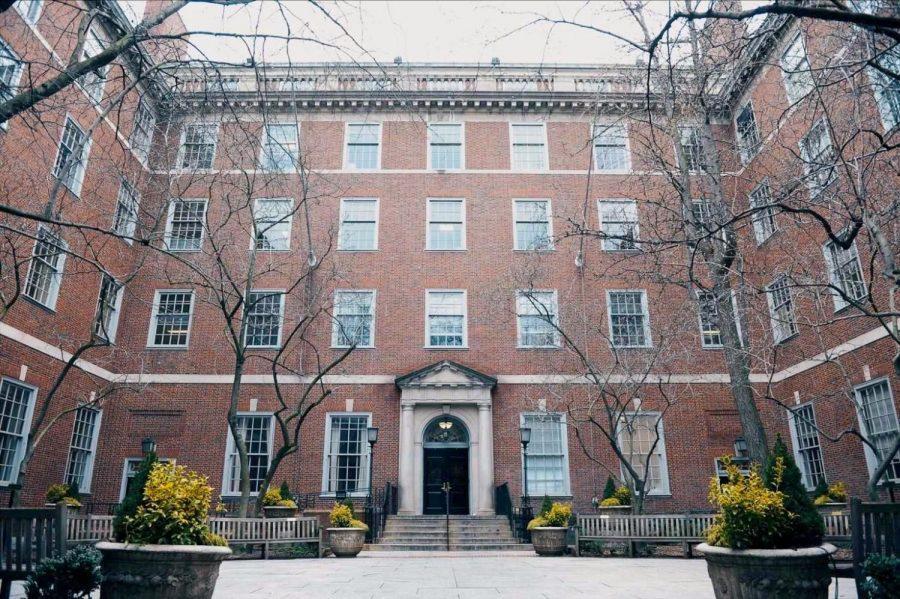NYU students have both warmly invited and vehemently protested certain speakers slated to visit campus. The ones that draw the most attention are conservative pundits like Milo Yiannopoulos — whose speaking engagement last year was canceled — and Gavin McInnes — who was pepper-sprayed by a protestor outside his 2017 talk. A panel spoke about the merits of seeking to prevent speakers from coming to college campuses at the Cantor Film Center on Thursday.
The panel was hosted by PEN America, a nonprofit organization that supports free expression worldwide, in conjunction with the NYU Center for the Humanities and the NYU Institute for Public Knowledge, which aim to foster interdisciplinary discussion and support events on issues of public concern.
The panel discussed the conflict between those who think people believed to promote hate, such as alt-right speakers, should not be allowed to speak on college campuses and those who believe that is a violation of free speech.
Campus Free Speech Project Director Jonathan Friedman began the event by proposing that two fundamental truths are at play in the conflict.
“First, teaching about the value of free speech to a democratic society is a fundamental and enduring responsibility of the academy,” Friedman said. “Secondly, the calls for campuses to work to expel racism, hate and discrimination are legitimate, they’re urgent and they’re just. To anyone monitoring national news about higher education, it is plainly apparent that these two sets of values have been clashing.”
Interim Policy Director at the New York Civil Liberties Union Lee Rowland emphasized the capacity of a university to employ its standing and resources during free speech conflicts.
“The school still has the power, without disinviting that speaker, to use its bully pulpit to contextualize, to maybe even oppose the views that those students have chosen to highlight,” Rowland said. “If we want an atmosphere where free inquiry presides, the university has to lead the way and show us how these values coexist.”
PEN CEO Suzanne Nossel referred to Yiannopoulos, a conservative pundit who consistently gains coverage for racist or problematic remarks. For instance, he has said that Muslims should be sent back to the Middle East and that journalists should be gunned down. In 2016, NYU canceled a scheduled talk with him due to security concerns. In 2018, another Yiannopoulos talk at NYU was postponed indefinitely at the request of Mayor Bill de Blasio.
“In our view, [the universities] have to enable this talk or whatever it is to go forward,” Nossel said. “It shouldn’t be shot down. It shouldn’t give Milo the platform to grandstand about having been silenced, but at the same time, you speak out from the voice of the university about the values. You can do other things to support students who feel victimized and unsettled by the presence.”
There was also an incident in 2017 in which VICE co-founder McInnes walked out of a talk at NYU because he could not be heard over the sounds of protestors and was attacked with pepper spray.
Attendee and CAS junior Emma Fecko was at NYU when the controversies over Yiannopoulos and McInnes occurred, but was not directly involved.
“I’m not generally happy with the way NYU handles most things,” Fecko said. “I think that those who run the institution are so far removed from the student body and aren’t really at all involved in our daily lives or take the time to acknowledge how we experience school here.”
Another attendee, CAS senior Helena Gonzalez said she felt universities should prohibit speakers that meet certain criteria.
“When this person speaking becomes a security concern, that’s where there’s certainly a line,” Gonzalez said. “And a lot of times, especially with these alt-right people, it does become a security concern.”
Fecko, who came into the event with the view that offensive speech should be monitored, found that the panel brought new perspectives to her attention.
“I think that just by being in a space like this and hearing different opinions about it, my ideas are more developed,” Fecko said.
Email Tessa Kilcline at [email protected].


























































































































































